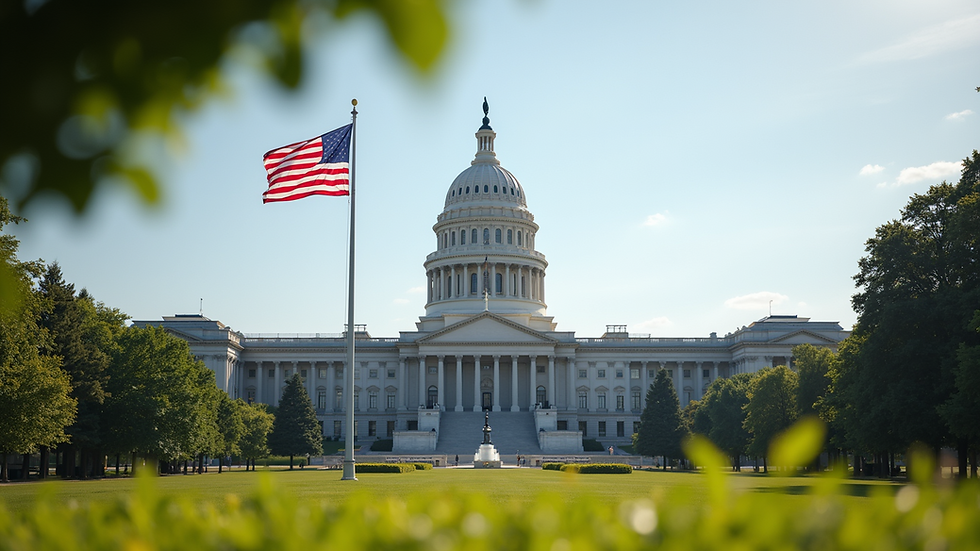Understanding the Legal Landscape of CBD in the US
- hanina14
- Sep 22
- 3 min read
The legal status of CBD (cannabidiol) in the United States is complex and constantly evolving. As more people turn to CBD products for wellness and therapeutic purposes, understanding the legal framework is essential. This article breaks down the key aspects of CBD regulations, age restrictions, and purchasing guidelines to help you navigate the landscape confidently.
Overview of CBD Regulations in the US
CBD is a compound derived from the cannabis plant, but unlike THC, it does not produce psychoactive effects. The 2018 Farm Bill was a significant milestone, legalizing hemp-derived CBD products containing less than 0.3% THC at the federal level. However, state laws vary widely, creating a patchwork of regulations.
Federal Law: Hemp-derived CBD is legal if it meets the THC limit.
State Laws: Some states allow recreational and medical cannabis, while others restrict or ban CBD products.
FDA Regulations: The Food and Drug Administration regulates CBD in food, supplements, and cosmetics but has not approved most CBD products for medical use.
Understanding these layers is crucial for consumers and businesses alike. For example, a CBD product legal in one state might be illegal in another. Always check local laws before purchasing or using CBD.

Navigating State-Specific CBD Regulations
Each state has its own approach to CBD, influenced by local attitudes toward cannabis and public health policies. Some states have embraced CBD fully, allowing sales in stores and online, while others impose strict controls.
States with Broad CBD Access: California, Colorado, and Oregon allow hemp-derived CBD products with minimal restrictions.
States with Medical-Only CBD: Florida and New York permit CBD use only for qualifying medical conditions.
States with Restrictions or Bans: Idaho and South Dakota have strict laws limiting or prohibiting CBD sales.
Retailers and consumers should be aware of these differences. For instance, labeling requirements, product testing, and licensing vary by state. This can affect product quality and safety.

Can I buy CBD gummies at 18?
One common question is whether individuals aged 18 can legally purchase CBD gummies or other CBD products. The answer depends on state laws and retailer policies.
Federal Perspective: There is no federal age limit specifically for CBD products.
State Age Restrictions: Many states set the minimum age at 21 for purchasing CBD, especially if the product contains any THC.
Retailer Policies: Some stores require customers to be 21 or older regardless of state law.
For example, in states like California, adults 18 and older can buy hemp-derived CBD products, but in others like Texas, the minimum age is 21. Always verify the local rules and retailer requirements before attempting to purchase.
If you want to learn more about cbd age restrictions, this resource provides detailed information on age-related laws and guidelines.

Practical Tips for Buying CBD Legally and Safely
When purchasing CBD products, legality is just one part of the equation. Ensuring product quality and safety is equally important.
Check the Source: Buy from reputable brands that use hemp grown in the US.
Look for Lab Testing: Third-party lab results should confirm THC levels and absence of contaminants.
Understand Product Labels: Pay attention to CBD concentration, ingredients, and usage instructions.
Know Your State Laws: Confirm that the product complies with your state’s regulations.
Consult Healthcare Providers: Especially if you are taking medications or have health conditions.
By following these steps, you can avoid legal issues and ensure you are using safe, effective CBD products.
The Future of CBD Legalization in the US
The legal landscape for CBD is expected to continue evolving. Several bills are under consideration to clarify federal regulations and expand access. Public opinion is increasingly favorable toward cannabis and CBD, which may drive legislative changes.
Potential Federal Reforms: Proposals to legalize cannabis federally could simplify CBD regulations.
Increased FDA Oversight: The FDA may develop clearer guidelines for CBD in food and supplements.
State-Level Changes: More states may update laws to align with federal standards or expand medical cannabis programs.
Staying informed about these developments is important for consumers, businesses, and policymakers. The legal landscape today is complex, but it is moving toward greater clarity and accessibility.

Staying Informed and Compliant
Navigating the legal landscape of CBD requires ongoing attention to laws and regulations. Here are some final recommendations:
Regularly check official state and federal websites for updates.
Use trusted sources for product information and legal advice.
Understand the implications of cbd age restrictions before making purchases.
Advocate for clear and consistent regulations to support safe access.
By staying informed and cautious, you can enjoy the benefits of CBD while respecting the legal framework that governs its use in the US.




Comments